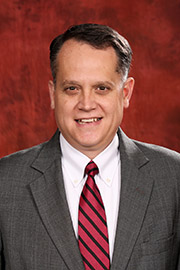
Oct. 12 marks World Arthritis Day, a time to raise awareness of a disease that impacts more than half a billion people worldwide. According to the Arthritis Foundation, arthritis is the leading cause of disability in the United States, affecting nearly one in four people.
Benjamin Smith, associate dean of the School of Physician Assistant Practice at Florida State University’s College of Medicine, is at the forefront of this challenge. With more than 25 years of clinical experience as a physician assistant in rheumatology, Smith combines his clinical background with education and research to improve care for patients with arthritis among other autoimmune conditions.
Smith is available to speak with media about his latest research on arthritis treatment and outcomes. He can be reached at benjamin.smith@med.fsu.edu.

Benjamin J. Smith, program director and associate dean, School of Physician Assistant Practice, FSU College of Medicine
Arthritis is often thought of as an “older adult” condition. Is that accurate? Can you talk about who it affects?
Arthritis and autoimmune diseases can affect people at any age, including children. Many families have to travel hours to reach a pediatric rheumatologist because there are so few. On the other end of the spectrum, older adults also face rheumatic diseases that appear later in life.
These diseases are lifelong conditions that carry both direct and indirect costs. This is why strengthening care across the lifespan is so important.
Arthritis and autoimmune conditions affect millions of Americans. How does your research translate into better outcomes for patients?
Treatments are sharper and more effective than they were even a few decades ago, though we still don’t have cures for most rheumatic diseases. The key is making sure patients have access to the best possible care. This means continuing to refine therapies, expand the health care workforce and ensure patients can maintain their function and quality of life.
Ultimately, it’s about helping people not only do what they need to do, but also what they want to do.
You recently co-authored the 2024 American College of Rheumatology Guidelines for Lupus Nephritis, a kidney disorder caused by the autoimmune disease systemic lupus erythematosus. Knowing that persons with lupus may experience many other symptoms, including arthritis, what were the biggest updates compared to past guidelines?
The guidelines reflect the tremendous progress we have made in treating lupus nephritis. One key takeaway is the emphasis on combination therapy — using multiple treatment approaches alongside careful monitoring and judicious use of corticosteroids. We also now have stronger screening tools for diagnosis and long-term monitoring.
Importantly, the guidelines incorporated perspectives from rheumatologists, nephrologists and patients themselves, which makes the recommendations much more applicable in real-world practice.
How do these findings inform training and policy around access to rheumatology care?
One major priority is growing the rheumatology workforce. We need more physician assistants working in rheumatology, and the data shows that number is trending upward. The next step is to determine how to maximize their skills based on training, expertise and scope of practice so patients with rheumatic diseases have better access to timely, effective care.
Are there any upcoming projects at FSU you’re excited about?
I am very excited about FSU Health and the mission of the College of Medicine to reach underserved communities in North Florida and across the state. While arthritis is just one part of that, the broader goal is the same: improving access, optimizing treatment and making sure our patients and communities benefit from advances in medicine.



